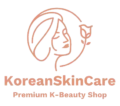Understanding the Meaning and Cultural Symbolism of the Sun in Korean
The word sun in korean goes far beyond just describing a celestial object. In Korean culture, the sun symbolizes warmth, life, and renewal. This deep symbolism is reflected in various forms—from traditional paintings to modern skincare ads. The sun plays a key role in nature-based beliefs and daily rituals, and it appears frequently in language, music, and poetry.
● In traditional folk songs, the sun is often a metaphor for hope and perseverance. ● In the Korean holiday Chuseok, families pay homage to ancestors under the morning sun. ● The sun also represents healing and beauty in K-beauty, connecting directly to brightening products like sunscreens.
Interestingly, K-dramas often use sunrise scenes to represent fresh starts or dramatic shifts. The visual language aligns with how Koreans emotionally connect with nature.
You can see this idea play out beautifully in Best Korean Whitening Cream to Brighten and Even Skin, where sun-themed brightness is more than just cosmetic—it’s symbolic.
Table of Contents
Common Korean Words for Sun and Their Contexts
Let’s break down the core vocabulary. The most common korean word for sun is:
★ 해 (hae) – This is the everyday noun for “sun” used in conversation, poetry, and even in names like Haesun or Haemin.
★ 태양 (taeyang) – A more formal or scientific term, used in astronomy or academic contexts.
Each has its place:
“오늘 해가 참 밝다” (The sun is so bright today) – casual.
“지구는 태양 주위를 돈다” (Earth revolves around the sun) – scientific.
Knowing when to use each word helps you sound more natural. The phrase how to say sun in korean becomes less about memorizing and more about context.
You’ll find this language nuance similar to what’s explored in Korean Girl Aesthetic Trends in Fashion and Makeup, where tone and intent shift based on subtle word choices.

Everyday Expressions Using the Word ‘Sun’ in Korean
In daily life, the sun in korean pops up in charming idioms and expressions:
✔️ 해가 쨍쨍하다 – It’s blazing sunny. A common weather comment. ✔️ 해가 길어졌다 – The days are getting longer (used in spring/summer). ✔️ 해를 보다 – Literally “see the sun” but often used figuratively for meeting someone after a long time. ✔️ 해가 뜨다 / 해가 지다 – The sun rises / sets.
Example: “요즘 해가 길어져서 기분이 좋아요” (These days, the sun stays out longer and I feel happier).
Such expressions add color to your Korean and connect you emotionally to the korean nature vocabulary.
Curious how the sun connects to beauty and style? Read Elegant Korean Nails and Nail Art Ideas for a Classy Look.
How to Write and Pronounce ‘Sun’ in Hangul
Here’s a simple breakdown of the hangul sun translation:
➤ 해 is made of two Hangul letters: ㅎ(h) + ㅐ(ae). Pronounced roughly like “heh.” ➤ 태양 is made of ㅌ(tae) + ㅑ(ya) + ㅇ(ng). Pronounced “tae-yang.”
Practice writing them:
해: One syllable, often used in children’s books and songs.
태양: Two syllables, more formal, sometimes used in product names.
A fun tip: The popular K-pop artist Taeyang (from BIGBANG) uses this word as his stage name, highlighting its cultural depth.
Want to reinforce your language skills? Check out Speak English with Ease | Learn English for Free in 2025 for language learning strategies that work across languages.
Exploring Korean Nature Vocabulary Related to the Sun
Understanding sun related korean terms helps you go beyond just one word. Here are related nature terms you’ll find useful:
🌿 하늘 (haneul) – Sky 🌿 빛 (bit) – Light 🌿 열 (yeol) – Heat 🌿 햇살 (haetsal) – Sunshine (sun rays) 🌿 날씨 (nalssi) – Weather
Let’s build sentences:
“햇살이 좋아서 산책했어요” (The sunshine was nice, so I took a walk).
“하늘이 맑고 해가 쨍쨍해요” (The sky is clear and the sun is bright).
This vocabulary blends beautifully into daily conversations and even skincare marketing, like in Best Korean Mineral Sunscreen for Sensitive Skin Types.
Useful Korean Phrases for Talking About Weather and Sunlight
Let’s bring your korean word for sun into full sentence form with these daily-use phrases:
☀️ 오늘 해가 참 따뜻하네요 – The sun is so warm today. ☀️ 태양이 너무 강해서 선크림 발랐어요 – The sun was too strong, so I applied sunscreen. ☀️ 해가 지기 전에 가자 – Let’s go before the sun sets. ☀️ 해 뜨는 거 봤어요? – Did you see the sunrise?
These are not only useful, they give you fluency with rhythm and formality. You’re not just learning words—you’re sounding like a native!
For those looking to talk about skincare under the sun, explore Best Korean Cushion Foundation That Covers and Glows.
Practice Makes Perfect: Fun Tips to Learn Sun-Related Korean Terms
Language sticks best with practice. Here are some fun ways to remember sun in korean and related terms:
🌞 Watch weather forecasts in Korean and try to catch “해” or “태양.” 🌞 Follow Korean skincare brands on Instagram—notice how they describe sunlight and protection. 🌞 Try journaling: “오늘의 해는 어땠나요?” (How was today’s sun?) 🌞 Use flashcards or apps like Anki to memorize korean nature vocabulary.
And remember, practicing with native content is powerful. Read product ads, captions, or even lyrics featuring sun imagery. Then, put your learning into action!
Questions about language or products? Contact Us | KoreanSkinCare.asia anytime.
Related Posts

How to Say Sun in Korean and Use It in Daily Phrases
Learn how to say sun in korean and use the word naturally in daily expressions vocabulary and beginner language lessons.

Best Korean Whitening Cream to Brighten and Even Skin
Discover the best korean whitening cream to reduce dark spots and enhance radiance using safe and gentle brightening formulas.

Korean Girl Aesthetic Trends in Fashion and Makeup
Explore the korean girl aesthetic from fashion to makeup including pastel tones soft blush and feminine kpop inspired styles.



